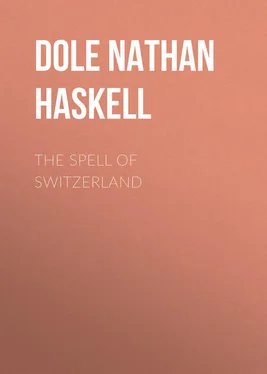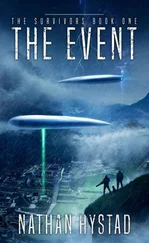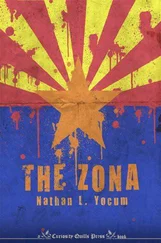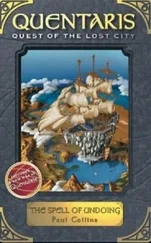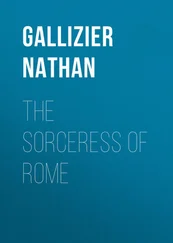Nathan Dole - The Spell of Switzerland
Здесь есть возможность читать онлайн «Nathan Dole - The Spell of Switzerland» — ознакомительный отрывок электронной книги совершенно бесплатно, а после прочтения отрывка купить полную версию. В некоторых случаях можно слушать аудио, скачать через торрент в формате fb2 и присутствует краткое содержание. Жанр: foreign_antique, foreign_prose, на английском языке. Описание произведения, (предисловие) а так же отзывы посетителей доступны на портале библиотеки ЛибКат.
- Название:The Spell of Switzerland
- Автор:
- Жанр:
- Год:неизвестен
- ISBN:нет данных
- Рейтинг книги:5 / 5. Голосов: 1
-
Избранное:Добавить в избранное
- Отзывы:
-
Ваша оценка:
- 100
- 1
- 2
- 3
- 4
- 5
The Spell of Switzerland: краткое содержание, описание и аннотация
Предлагаем к чтению аннотацию, описание, краткое содержание или предисловие (зависит от того, что написал сам автор книги «The Spell of Switzerland»). Если вы не нашли необходимую информацию о книге — напишите в комментариях, мы постараемся отыскать её.
The Spell of Switzerland — читать онлайн ознакомительный отрывок
Ниже представлен текст книги, разбитый по страницам. Система сохранения места последней прочитанной страницы, позволяет с удобством читать онлайн бесплатно книгу «The Spell of Switzerland», без необходимости каждый раз заново искать на чём Вы остановились. Поставьте закладку, и сможете в любой момент перейти на страницу, на которой закончили чтение.
Интервал:
Закладка:
When human beings put themselves in the way of the forces of nature they are likely to be relentlessly wiped out of existence. Mountains have a way of nervously shaking their shoulders as if they felt annoyed at the temples or huts put there by men, just as a horse scares away the flies on his flank, and, as the flies come back, so do men return to the fascinating heights. It has been remarked that large rivers always run by large cities, but the intervales through which the rivers run, the flat lands which offer such opportunities for laying out streets at small expense, are the creations of the busy waters, and they seem to resent the trespassing of bipeds, and they sometimes rise in their wrath and sweep the puny insects away.
I ought not to speak disparagingly of Paris: it was in my plan to return later and stay as long as I pleased. How can one judge of a person or of a city in a moment’s acquaintance? We left by the Porte de Clarenton; we sped through the famous forest of Fontainebleau – Call it a forest! It is about as much of a forest as a golf links are a mountain lynx. We stayed long enough to look into the famous palace, and evoke the memories of king and emperor.
We spent a night at Orléans. I dreamed that night that Julius Cæsar was kind enough to show me about. He pointed out the spot where his camp was established and he told me how he burnt the town of Genabum, the capital of the Carnutes. I had not long before read Napoleon’s “Life of Cæsar.”
To think of two thousand years of continuous existence; the same river flowing gently by. If only rivers could remember and relate! It would have reflected Attila in its gleaming waters. It would also have its memories of the Maid whose courage freed the former city of the Aurelians from its English foes.
When we reached Tours the question arose whether we should not take the roundabout route through Poitier, Angoulême and Biarritz, thence zigzagging over to Pau, with its memories of Marguerite de Valois, and the birthplace of Bernadotte, pausing at Carcassonne – if for nothing else to justify one’s memory of Gustave Nadaud’s famous poem: —
“Yet could I there two days have spent
While still the autumn sweetly shone,
Ah me! I might have died content,
When I had looked on Carcassonne” —
getting wonderful views of the Pyrenees – only three hundred and fifty-two miles from Tours to Biarritz, less than three hundred miles to Carcassonne.
One hundred and thirty miles farther is Montpellier, once famous for its school of medicine and law. Here Petrarca studied almost six hundred years ago and here, in 1798, Auguste Comte, the prophet of humanity, was born.
At Nîmes, thirty miles farther on, beckoned us the wonderful remains of the old Roman civilization – the beautiful Maison Carrée, its almost perfect amphitheatre, where once as many as twenty thousand spectators could watch naval contests on its flooded arena, where Visigoths and Saracens engaged in combats which made the sluices run with blood. Here were born Alphonse Daudet and the historian Guizot. Was it not worth while to make a pilgrimage to such birthplaces? I would walk many miles to meet Tartarin.
Only twenty-five miles farther lies Avignon, on the Rhône, once the abiding-place of seven Popes, and from there a run of one hundred and eighty-five miles takes one to Grenoble, whence, by way of Aix-les-Bains, it is an easy and delightful way to reach Geneva. Then Lausanne – home, so to speak! – a lakeside drive of a couple of hours!
The other choice led from Tours, through Bourges, Nevers, Lyons, tapping the longer route at Chambéry.
“We will leave it to you to decide,” said my niece. “It makes not the slightest difference to us. We have plenty of time. Emile says the roads are equally good in either itinerary. I myself think the route skirting the Pyrenees would be much more interesting.”
“So do I! I vote for the longer route.”
Now there is nothing that I should better like than to write a rhapsody about that marvellous journey – not a mere prose “log,” giving statistics and occasionally kindling into enthusiasm over historic château or medieval cathedral or glimpse of enchanting scenery; but the “journal” of a new Childe Harold borne along through delectable regions and meeting with poetic adventures, having at his beck and call a winged steed tamer than Pegasus and more reliable. But I conscientiously refrain. My eyes are fixed on an ultimate goal, and what comes between, though never forgotten, is only, as it were, the vestibule. So I pass it lightly over, only exclaiming: “Blessed be the man who first invented the motor-car and thrice blessed he who put its crowning perfections at the service of mankind!” In the old days the diligence lumbered with slow solemnity and exasperating tranquillity through landscapes, even though they were devoid of special interest. The automobile darts, almost with the speed of thought, over the long, uninteresting stretches of white road. There is no need to expend pity on panting steeds dragging their heavy load up endless slopes. And when one wants to go deliberately, or stop for half an hour and drink in some glorious view, the pause is money saved and joy intensified. There is no sense of weariness such as results from a long drive behind even the best of horses. Not that I love horses less but motos more!
Twenty days we were on the road and favoured most of the time with ideal weather. It was one long dream of delight. We had so much to talk about; so much we learned! So many wonderful sights we saw!
How could I possibly describe the first distant view of the Alps? It is one of those sensations that only music can approximately represent in symbols. Olyenin, the hero of Count Tolstoï’s famous novel, “The Cossacks,” catches his first glimpse of the Caucasus and they occupy his mind, for a time at least, to the exclusion of everything else. “Little by little he began to appreciate the spirit of their beauty and he felt the mountains.”
I have seen, on August days, lofty mountains of cloud piled up on the horizon, vast pearly cliffs, keenly outlined pinnacles, and I have imagined that they were the Himalayas – Kunchinjunga or Everest – or the Caucasus topped by Elbruz – or the Andes lifting on high Huascarán or Coropuna – or more frequently the Alps crowned by Mont Blanc or the Jungfrau. For a moment the illusion is perfect, but alas! they change before your very eyes – perhaps not more rapidly than our earthly ranges in the eyes of the Deity to whom a thousand years is but a day. They, too, are changing, changing. Only a few millions of years ago Mont Blanc was higher than Everest; in the yesterday of the mind the little Welsh hills, or our own Appalachians, were higher than the Alps.
Like summer clouds, then, on the horizon are piled up the mighty wrinkles of our old Mother Earth. We cannot see them change, but they are dissolving, disintegrating. Only a day or two ago I read in the newspaper of a great peak which rolled down into the valley, sweeping away and burying vineyards and orchards and forests and the habitations of men. The term everlasting hills is therefore only relative and their resemblance to clouds is a really poetic symbol.
Oh, but the enchantment of mountains seen across a beautiful sheet of water! It is a curious circumstance that the colour of one lake is an exquisite blue, while another, not so far away, may be as green as an emerald. So it is with the tiny Lake of Nemi, which is like a blue eye, and the Lake of Albano, which is an intense green. Here now before our eyes, as we drove up from Geneva to Lausanne, lay a sheet of the most delicate azure, and we could distinctly see the fringe of grey or greenish grey bottom, the so-called beine or blancfond , which the ancient lake-dwellers utilized as the foundation for their aerial homes. My nephew told me how a scientist, named Forel, took a block of peat and soaked it in filtered water, which soon became yellow. Then he poured some of this solution into Lake Geneva water, and the colour instantly became a beautiful green like that of Lake Lucerne.
Читать дальшеИнтервал:
Закладка:
Похожие книги на «The Spell of Switzerland»
Представляем Вашему вниманию похожие книги на «The Spell of Switzerland» списком для выбора. Мы отобрали схожую по названию и смыслу литературу в надежде предоставить читателям больше вариантов отыскать новые, интересные, ещё непрочитанные произведения.
Обсуждение, отзывы о книге «The Spell of Switzerland» и просто собственные мнения читателей. Оставьте ваши комментарии, напишите, что Вы думаете о произведении, его смысле или главных героях. Укажите что конкретно понравилось, а что нет, и почему Вы так считаете.
